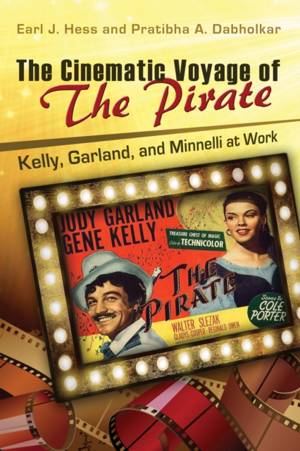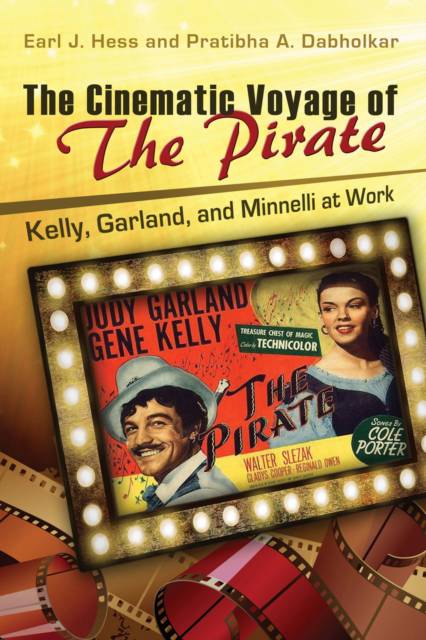
- Retrait gratuit dans votre magasin Club
- 7.000.000 titres dans notre catalogue
- Payer en toute sécurité
- Toujours un magasin près de chez vous
- Retrait gratuit dans votre magasin Club
- 7.000.0000 titres dans notre catalogue
- Payer en toute sécurité
- Toujours un magasin près de chez vous
The Cinematic Voyage of the Pirate
Kelly, Garland, and Minnelli at Work Volume 1
Earl J Hess, Pratibha A DabholkarDescription
During Metro-Goldwyn-Mayer's glory days, the studio's famous Arthur Freed Unit made an extraordinary string of dazzling musicals. One of its very best was The Pirate. Based on a successful 1942 Broadway production, the film was directed by Vincente Minnelli and starred Gene Kelly and Judy Garland. It showcased some of the brightest work of these three gifted moviemakers and entranced many critics and viewers with exotic set décor and costumes, brilliant Technicolor application, stunning dance routines, and a clever plot about an actor who pretends to be a famous pirate to win the love of a fanciful island girl.
The Cinematic Voyage of The Pirate: Kelly, Garland, and Minnelli at Work follows the model of Hess and Dabholkar's previous study of Singin' in the Rain. Drawing on exhaustive research in archives, memoirs, interviews, and newspaper coverage, it takes the reader from the original conception of the story in the mind of a German playwright named Ludwig Fulda, through S. N. Behrman's Broadway production starring Alfred Lunt and Lynn Fontanne, to the arduous task of crafting a suitable screenplay at MGM. Behind-the-scenes issues such as Garland's personal problems during the making of the film and the shaping of the film by Minnelli and Kelly are among the many subjects detailed here.While the initial reception of The Pirate reinforced hopes for its success, many audiences did not understand the film's tongue-in-cheek aspect, and some critical reviews were mixed. This shaded the perception of the film and its significance. As this careful study shows, The Pirate was a commercial and critical success despite some early misperceptions. The movie made a small profit for MGM, and the film grew in public appeal over time.The Pirate has been studied by film historians, gender studies scholars, and film studies professionals since it was released in 1948. The Cinematic Voyage of The Pirate contributes to a growing literature asserting the importance of single-film production history and the significance of the film musical in the golden age of Hollywood.
Spécifications
Parties prenantes
- Auteur(s) :
- Editeur:
Contenu
- Nombre de pages :
- 280
- Langue:
- Anglais
Caractéristiques
- EAN:
- 9780826220226
- Date de parution :
- 21-07-14
- Format:
- Livre relié
- Format numérique:
- Genaaid
- Dimensions :
- 163 mm x 229 mm
- Poids :
- 566 g

Les avis
Nous publions uniquement les avis qui respectent les conditions requises. Consultez nos conditions pour les avis.






